Discover Stansberry Investor Hour
Stansberry Investor Hour

Stansberry Investor Hour
Author: Stansberry Research
Subscribed: 1,162Played: 69,415Subscribe
Share
© Stansberry Research
Description
From financial markets and politics to business and social issues, Dan Ferris and our Stansberry Analysts offer candid discussion on today’s most important headlines. Each week you’ll hear exclusive interviews with guest investment experts, authors, and top thinkers such as Jim Rogers, Kevin O’Leary, Glenn Beck, PJ O’Rourke, and Jim Grant.
The Stansberry Investor Hour is produced by Stansberry Research, LLC.
The Stansberry Investor Hour is produced by Stansberry Research, LLC.
431 Episodes
Reverse
On this week's Stansberry Investor Hour, Dan and Corey welcome Joel Litman back to the show. Joel is the founder and chief investment officer of our corporate affiliate Altimetry, where his team uses their Uniform Accounting system to look beyond the as-reported numbers in financial reports to see how companies are really performing. Joel kicks things off by discussing the resilience of the U.S. stock market, which has takenmany professional investors by surprise. He states that historically, tariffs have not been a tax on consumers, with exporters absorbing 50% to 60% of costs to maintain their market share. Joel also argues that the U.S. dollar continues to be strong and that despite recession woes, corporate credit shows the economy is persistent. (0:00) Next, Joel urges folks not to give in to the "fear of getting in" (the counterpart to the "fear of missing out"). Because investors are seeing new highs, they think they've missed out on buying in, but Joel says that's a mistake. Joel also shares his thoughts on the usage of AI and how many concerns over it replacing the entire workforce are unwarranted. Additionally, he says that the investment advice it provides is often incorrect and that is should be used as a supplement to research instead. (26:36) Finally, Joel reflects along with Dan and Corey on Nobel Prize-winning economist Eugene Fama and the scope of his knowledge. Joel also provides a brief explanation of what he and his team look for at Altimetry. And he provides a glimpse of some of his latest research.(45:41)
On this week's Stansberry Investor Hour, Dan and Corey welcome Chris Irons to the show. Chris started writing about finance back in 2013 under the moniker Quoth the Raven and was a speaker at the 2019 Stansberry Conference. Chris kicks things off by addressing tariffs and shares how nominal prices will continue to rise regardless of what we do. He says the cycle of crashes and money-printing has continued to accelerate and create bigger distortions and drops. And he discusses passive bids that pile into the S&P 500 Index and cause valuations to become stretched. He warns against overexposure to the fund due to potential drawdowns in any of the "Magnificent Seven" that could take the index down with them. (0:00) Next, Chris states that the market has gone "all in" on options instead of equities, creating a state of leveraged gambling. And he predicts that things have changed so much that despite the beliefs that there will continue to be government bailouts or other solutions, this cannot continue. Something will break eventually. However, it's not all doom and gloom. Chris says you just have to find where there's good value. (24:06) Finally, Chris shares advice on how to hedge any large market crashes based on his own strategies. He also cautions against buying into assets in blind hope of reaching a bottom. If a company is burning money without generating any cash, there won't be a bottom to bounce off of. (42:19)
On this week's Stansberry Investor Hour, Dan welcomes Joe Boskovich to the show. Joe is the founder of Old West Investment Management, an investment firm focused on finding high-quality companies with deep value. Joe kicks things off by sharing his background in company management. He states that he uses his past experience to evaluate how the companies he considers investing in are being run. Examining the steps management takes and how they behave will reflect their long-term goals with the company and if the correct actions are being taken to help the company succeed. And Joe says one of the easiest ways to gain insight is by seeing how they're being paid. (0:00) Next, John compares the differences between deep-value companies and distressed companies, showing how one that might appear to be "junk" might have potential if it's run well. And while folks love the big tech companies, most don't think about the metals that are needed in the products that they manufacture, which are where the bigger opportunities lie. (20:41) Finally, Joe and Dan talk about company scale and how companies should handle expanding locations. And Joe mentions how stock picking has become "a lost art" due to investors putting their money into indexes and exchange-traded funds. He shares several companies in the homebuilding sector that have caught his attention. And he warns about selling your stocks too soon. Joe views his investing as a "partnership" with the companies that he wants to own in the long run. (41:05)
On this week's Stansberry Investor Hour, Dan welcomes value investor Tobias Carlisle back to the show. Tobias is the founder and portfolio manager of Acquirers Funds, a deep-value investment firm. He's also an author and host of the Acquirers Podcast. Tobias kicks things off by discussing the "happy hunting ground" in small-cap stocks, the market narrowing in the S&P 500 Index, and the massive amounts of capital flowing into AI. He also compares the AI mania today with the dot-com boom of the late '90s, questions how AI is making money, and notes that the bottom 490 stocks in the S&P 500 have been in a "little recession" since 2022. He says this gives value investors an opportunity right now to get great names for cheap before the inevitable rebound. After that, Tobias comments on passive investing, what could be in store for the top 10 large caps, and why fears of AI destroying the jobs market are overblown. (0:00) Next, Tobias talks about his company's two funds: the Acquirers Fund (ZIG) and Acquirers Small and Micro Deep Value Fund (DEEP). He explains what he looks for when picking stocks and how he determines valuations. He also name-drops many stocks and industries that he thinks have fantastic potential over the next decade. (21:01) Finally, Tobias discusses the significance of hedge-fund shorts of the small-cap Russell 2000 Index peaking recently, plus the extreme concentration of the top 10 stocks. He notes that Nvidia now accounts for 8% of the S&P 500's market cap – the highest in history. Tobias says that valuations will eventually come back down to Earth and that not all of the Mag Seven will be top performers in the future. Citing Tesla as the weakest in the group, he points out that Chinese electric vehicles beat Tesla cars in terms of price, design, and charging times. Tobias then closes things out with a conversation about an "echo boom" of 2021, cryptocurrencies being back in favor, and the unprecedented outperformance of large caps. (37:31)
On this week's Stansberry Investor Hour, Dan and Corey welcome J.C. Parets to the show. J.C. is a Chartered Market Technician and editor of the Everybody's Wrong newsletter. He's also the founder of All Star Charts – a research platform for both professional and retail investors which tracks U.S. and international stocks, interest rates, commodities, and foreign exchange markets. J.C. kicks things off by discussing the difference between market technicians and "chartists," the fact that valuations and fundamentals no longer drive stock prices, and the "big bullies" that trickle down to the individual stock level and move markets. He delves into the topic of positioning and finding parts of the market where folks are too bullish or too bearish. For example, J.C. points out that small caps are currently vulnerable for a squeeze. After that, he gives listeners the "cheat code" for analyzing the market, including what to look for, how to cut through the "noise machine" of financial media, how to spot changes in trends, and how to distinguish reality from narrative. (0:35) Next, J.C. walks through a hypothetical trade in the small-cap Russell 2000 Index to demonstrate his thought process and how exactly he finds opportunities. He highlights relative strength, waiting for a change in trend, weighing risk versus reward, not taking profits too early, and his unique position-sizing strategy. J.C. also emphasizes the importance of continually asking yourself how you could be wrong once you've formulated a thesis. As he says, if you can't answer the question and don't know how the market could prove your thesis wrong, "It's not an investment. It's a religion [based on belief alone]." This leads J.C. to talk about overcoming human emotion, having a plan before entering a trade, and taking advantage of all the emotional investors who don't have a plan. (19:48) Finally, J.C. throws out a few areas of the market he likes today and is following closely for opportunities, explains how he decides the right time to enter and add to a trade, and gives listeners solid advice for risk management. "If you're in a trade that's losing, you're going to be distracted, and you're going to miss the giant elephant that's walking right past you," J.C. quips. And he closes the show out with a conversation about investing discipline, including not entering risky trades even if you know they'll go up. (37:21)
On this week's Stansberry Investor Hour, Dan and Corey welcome Eugene Fama to the show. Eugene is a Nobel Prize-winning economist and widely recognized as the "father of modern finance." Eugene kicks things off by talking a bit about his efficient-market hypothesis, whether he believes it's still relevant in today's economy, and how passive investing plays a role in all this. He also discusses what it's like winning a Nobel Prize, the impact of his five-factor model on investing and the rise of factor-based funds, rationality versus irrationality, and the importance of luck in markets. (0:34) Next, Eugene argues against a New York Times article claiming that a PhD in economics won't bring affluence or prestige anymore, laments the lack of new breakthroughs in financial theory/modeling, and comments on the modern competitive environment in economics that didn't exist 60 years ago. Things then take a more personal turn, and Eugene talks about his how he discovered his love of economics and what he wanted to focus his research on. (16:28) Finally, Eugene shares what it was like in Chicago back when the city was the epicenter of financial research, including his experience working with some other notable economists. After that, he gives his opinion on market bubbles. Speaking about the dot-com era, he says that the total value created from the industry is a big part of international wealth today, so it can't be considered a mistake. And he closes things out with a conversation about uncertainty in making predictions. (30:34)
On this week's Stansberry Investor Hour, Dan and Corey welcome Dr. David "Doc" Eifrig back to the show. Doc is the new permanent CEO of Stansberry Research's parent company MarketWise, as well as the editor of five newsletters at Stansberry and a member of the Investment Committee for Stansberry Portfolio Solutions. Doc kicks off the show by asking Dan about his recent river cruise vacation on the Mississippi River and sharing stories about his own trip to Lisbon, Portugal a few weeks ago. This leads to a conversation about Doc and Dan's first meeting in 2007 and how Dan was a "diligence check" for Doc joining Stansberry in the first place. Doc also talks about his permanent appointment as MarketWise CEO after almost a year holding the interim role. (0:46) Next, Doc discusses the financial-newsletter industry and what sets Stansberry apart in this era where anyone can self-publish content – including free content and AI-generated content. "I want us to be known as a trusted source," he notes. As Doc emphasizes, Stansberry is good at finding talented analysts who work hard, know their stuff, and can meet deadlines. He also looks back on the company since its "disaster" going public, previous leadership that didn't respect the company's history, and what has mattered most to him since becoming CEO. (23:57) Finally, Doc explains that caring about what you're doing and the experience you want to give is the most important thing in business. He gives shout-outs to several folks at MarketWise who are doing just this, from Stansberry's Executive Editor Carli Flippen overseeing everything that gets published, to the marketing team and copywriters who care about the customers more than making a sale. (45:32)
On this week's Stansberry Investor Hour, Dan and Corey welcome Joe Milam to the show. Joe is the founder and CEO of AngelSpan, which provides investor relations for early-stage startups. He's also the founder of The Legacy Funds and managing member of the Texas Legacy Fund. Joe kicks things off by recounting his background in finance and the "Forrest Gump-like experiences" that got him to where he is today. He critiques the venture-capital ("VC") world, as it requires no training or certification to enter. Joe explains that his mission is to bring professional standards and practices to early-stage VC. And he shares a few anecdotes of unprofessionalism in the VC world that you'll never hear reported by the media, including investing for access to a private jet. (0:47) Next, Joe discusses the massive opportunity in bringing professional processes to VC, especially because entrepreneurship is growing, yet the financial infrastructure has not been modernized to accommodate for this growth. He also talks about lack of diversification being a problem, the history of angel investing since the Revolutionary War, the role hype plays in VC, why he believes we're at the top of the "hype cycle" for AI, and the unintended consequences of technological innovation. (19:19) Finally, Joe points out that an understanding of financial history is directly linked to proper risk assessment and management. He notes that many folks will ignore risk even if they're warned about it, due to a lack of discipline and their fear of missing out on the next hottest thing. As Joe explains, there's an expanding pool of innovation and places to put money, so both VC and individual investors need to manage risk. (45:48)
On this week's Stansberry Investor Hour, Corey welcomes his colleague Brett Eversole back to the show. Brett is the editor of the True Wealth, True Wealth Systems, and DailyWealth newsletters. He also serves on the Investment Committee for Stansberry Portfolio Solutions. Brett kicks things off by sharing what he learned from his mentor Steve Sjuggerud, including the investment philosophy of buying assets that are "cheap, hated, and in an uptrend." He examines the recent tariff drama and why he believes we're about to return to a boring market fueled by fundamentals after several months of turbulence. As Brett explains, a lot of it has to do with increased capital spending from hyperscalers. (0:46) Next, Brett reviews the difference between secular bull markets and cyclical bull markets. He compares today's bull market (driven by AI) with the bull market of the late '90s (driven by the Internet), noting that a massive infrastructure buildout caused both. Brett predicts a normal market for the next few years, followed by a dot-com-style AI boom and then a "lost decade." He also discusses the S&P 500 Index decoupling from the U.S. economy, tariffs hurting smaller companies, and why he's bullish on gold and silver. (14:59) Finally, Brett talks about indicators that investors can use to gauge the market's underlying health, as well as what divergence between the indicators can mean in both the short and long term. He then dives into his work on Stansberry Portfolio Solutions, including the strategy the team uses to find the best companies and how to manage risk. And he closes things out with an in-depth analysis of today's real estate market. (33:29)
On this week's Stansberry Investor Hour, Dan and Corey are joined by Nick Maggiulli. Nick is the chief operating officer of Ritholtz Wealth Management and founder of the financial blog Of Dollars and Data. His new book, The Wealth Ladder, comes out next week. Nick kicks off the show by discussing The Wealth Ladder, including the six different levels of wealth and why income is a more crucial factor to building wealth than behavior. He also talks about jobs that will be a safe haven once artificial intelligence ("AI") becomes more prevalent, the mistakes people make when buying income-producing assets, the importance of diversification, and why he prefers to invest in index funds. (0:40) Next, Nick goes in depth on the spending mistakes people make that prevent them from moving up to a higher wealth level. He touches on diversification again, using Elon Musk versus Bill Gates as an example. Plus, he covers the different strategies for different wealth levels, why it's important to still focus on the nonfinancial things in life, statistical data for whether money can buy happiness, and the significance of money being a quantifiable thing. (17:27) Finally, Nick discusses the things that financially successful people may be overlooking, why the strategy for success may vary on a case-by-case basis, and the different levels of spending freedom. He says that level two allows freedom in the grocery store, level three allows freedom at restaurants, and level four allows freedom for traveling. And he shares a handy formula for people to use when it comes to nonessential spending. (35:15)
On this week's Stansberry Investor Hour, Dan and Corey welcome their colleague Alan Gula back to the show. Alan is an editor and member of the Investment Committee for The Total Portfolio and Stansberry's Forever Portfolio, as well as a senior analyst for flagship newsletter Stansberry's Investment Advisory. Alan kicks off the show by analyzing a chart of the S&P 500 Index since 1957. He notes that the index is running 35% above its long-term trend, which is high but not a historic extreme. Focusing on just the past 15 years, Alan discusses the current secular bull market and whether artificial intelligence ("AI") could usher in a dot-com-style boom. He also goes in depth on The Total Portfolio's investment philosophy, what kinds of assets are in the portfolio, how the portfolio has outperformed this year, and the difficulty with being truly diversified. (0:40) Next, Alan talks about managed futures and why their negative correlation with the S&P 500 makes them "the ultimate portfolio diversifier." As he explains, almost all investment advisers simply follow trends nowadays, so The Total Portfolio is one of the only places you can find truly diversified recommendations that'll protect you in any outcome. He then shares why he believes the traditional 40% allocation to bonds is dead, recommends two better ways to invest in this space, and explores where we are in the current bull market. (18:44) Finally, Alan advises bearish listeners to keep looking for opportunities. He says you can't predict the future, but you can set up win-win scenarios. This leads to a conversation about real estate investment trusts, sector correlations, strategies for picking stocks, and both the pros and cons of AI replacing human jobs. (34:26)
On this week's Stansberry Investor Hour, Dan and Corey welcome their colleague Bryan Beach back to the show. Bryan is the editor of Stansberry Venture Value and a senior analyst on Stansberry's Investment Advisory. Bryan kicks things off by discussing passive investing, the stock market's "relentless bid," and what could derail passive investing in the future. He points out that the total assets invested passively surpassed those invested actively last year. Not only is this an important fundamental change, but Bryan says that this alters the dynamic between investors and Mr. Market that legendary economist Ben Graham outlined 70-plus years ago. Then, using Microsoft as an example, Bryan analyzes whether it's realistic to expect the Magnificent Seven companies to return to lower multiples. (0:47) Next, Bryan talks about all the headwinds Apple has faced in the past six months and why he believes the stock would be down much more than it is today if it weren't receiving so many passively invested dollars. He says the size of the relentless bid reached a critical mass during the pandemic, and now the S&P 500 Index will continue to grind higher indefinitely. The only thing that can offset this natural inertia is bad economic news (such as tariffs), and even that is temporary. As Bryan points out, many passive investors aren't aware of what they're doing, so it would take legal changes to fix the problem. (19:32) Finally, Bryan explains that this relentless bid does not apply to every corner of the market. He says small caps and microcaps are still great places to find value. Plus, Bryan discusses the unique situation Tesla is in today, makes a bullish case for restaurant-operations company PAR Technology, and discusses what he got wrong with special purpose acquisition companies ("SPACs") back in 2022. (42:56)
On this week's Stansberry Investor Hour, Dan and Corey are joined by Joe Austin. Joe is an editor and senior analyst at our corporate affiliate Chaikin Analytics. He spent four decades in the financial-services industry and now joins the podcast to share some of his insights and future outlooks. Joe kicks off the show by outlining his background in finance and how he got involved at Chaikin Analytics. He delves into the usefulness of the Power Gauge, how he combines the tool with fundamentals to make stock-picking decisions, and what specific factors he finds most important. Next, Joe talks about artificial intelligence ("AI"). He says you can invest in the technology either by buying the companies developing AI or by buying non-AI companies that are implementing the technology to improve their businesses. Joe prefers the latter. He notes that certain industry groups are integrating AI more than others, and those would give you the biggest areas of opportunity. (0:38) Next, Joe discusses the data sets which AI uses and why the companies with the best data will win out in the end. He gives medical-technology company Veeva Systems and tool manufacturer Snap-on as two such examples. Joe then shares how macro influences affect his investing process, what he learned about the insurance industry from working in it, and one particular company he believes will do well in the long term. (17:58) Finally, Joe highlights specific industries he stays away from, the importance of understanding where you went wrong with an investment, and how he decides when to sell a stock. He notes that stocks that rise the most tend to fall the most... and that having fresh capital to use on new ideas is crucial. And he reminds listeners that having a defensive strategy is often more important than having an offensive strategy. (36:50)
On this week's Stansberry Investor Hour, Dan and Corey welcome Rupal Bhansali back to the show. Rupal is the founder, CEO, chief investment officer, and portfolio manager of investment adviser Double Duty Money Management. She's also the author of the book Non-Consensus Investing and a leading figure in value investing, with more than three decades of experience. Rupal kicks off the show by discussing her investment philosophy, how she defines "winning" in the stock market, the main misconception about contrarian investing, and why it's more important to not lose money in the market than to earn money. She warns investors that they can still lose money when investing in a high-quality company. As she says, the key to value investing is low downside. Rupal uses the auto industry as an example of a low-quality, cyclical industry, but highlights the hidden opportunity in tires, which are a consumer staple and not cyclical. (0:38) Next, Rupal talks about getting the best of both worlds with growth and value investing. She notes that this is very difficult to do today with U.S. stocks but that there are many untapped opportunities abroad – especially in Latin America. Rupal then delves into the world of diversification, including why having uncorrelated investment ideas in your portfolio is so crucial. This leads to a conversation about knowing when to buy more shares when one of your stocks is down versus cutting your losses and selling completely. Rupal outlines three core reasons to sell a stock, regardless of whether a stop loss was hit or not. (16:15) Finally, Rupal gives her opinion on buying companies like Costco Wholesale that have very high multiples but keep trading higher. She says the reward isn't worth the risk, since there are 49 non-Costcos for every Costco, and trying to find the one winner is very difficult. Rupal reiterates that it's all about cutting your losses early, accepting that you'll get things wrong, and learning from your mistakes. She also covers the wider macro environment relating to President Donald Trump's tariffs, clarifying that she's "macro aware" rather than "macro driven." (29:48)
On this week's Stansberry Investor Hour, Dan and Corey welcome Mike Barrett back to the show. Mike is the editor of Select Value Opportunities and senior analyst for Extreme Value. He has decades of cash-flow modeling and valuation expertise that he uses to find underappreciated, high-quality growth stocks. Mike kicks things off by discussing President Donald Trump's tariffs, their implication in the context of broad market cycles, and a potential 2026 low. He explains that he believes stocks have limited upside from here because of extreme positive sentiment and rampant overvaluation. And because there's so much uncertainty, Mike advises investors to make sure they have high-quality businesses in their portfolios. He also points out that the most overvalued stocks today are the defensive ones, but that could change once the tariff situation eases. (1:47) Next, Mike breaks down his personal investing philosophy and why he uses macroeconomic factors to look ahead only a few weeks rather than longer term. He also talks about the importance of momentum, taking risks to find out what works best for you as an investor, Nvidia being undervalued today, one company he likes that offers a good way to compound your wealth, and the optionality baked into Sprouts Farmers Market thanks to the rising popularity of weight-loss drugs. (18:42) Finally, Mike discusses Costco Wholesale's fantastic business growth, the importance of finding companies that perform consistently well, his recommendation of Constellation Brands that earned a triple-digit return for subscribers, crypto, and generative AI. (43:03)
On this week's Stansberry Investor Hour, Dan and Corey are joined by Jim Carroll. Jim runs the Vixology Substack, where he analyzes stock market volatility. He also serves as senior wealth adviser and portfolio manager for investment adviser Ballast Rock Private Wealth. Jim kicks off the show by describing how he got his start in finance and how he found his way to volatility trading with CBOE Volatility Index ("VIX") futures. He breaks down what caused "Volmageddon" in February 2018, what he learned from the experience, and which specific factors drive the VIX. As Jim explains, many investors don't realize that the VIX can soar higher when everyone is piling into buying call options. (0:46) Next, Jim talks about his "VIX Mix" composite of 17 different indicators that he uses as a warning signal for what's about to happen in the markets. This applies to both the downside and the upside, with the VIX Mix predicting crashes and rebounds alike. Though primarily for trading, Jim explains that long-term investors can use this tool to their advantage too, since they can prepare for bottoms and buy more stock when those drawdowns hit. He then warns listeners of several things they should keep in mind about volatility data, including small sample sizes, the fact that volatility clusters, and the outsized influence of institutional investors. (18:41) Finally, Jim gives his opinions on VIX futures products, such as the popular Simplify Volatility Premium Fund (SVOL). He reminds listeners to beware of embedded leverage and to size their positions carefully – especially because the stock market has become like a giant casino. Jim also analyzes why the VIX is tilted more toward the bearish side, how "market makers" profit from investor fear, and how to more accurately gauge underlying sentiment. (40:15)
On this week's Stansberry Investor Hour, Dan and Corey welcome Garrett Baldwin to the show. Garrett is a research economist, financial analyst, and investigative journalist. He's also a contributor to our flagship newsletter, Stansberry's Investment Advisory, as well as author of the Me and the Money Printer Substack. Garrett kicks off the show by explaining how he got his start in finance, why leaving the gold standard was the American economy's "core breaking point," and how liquidity is driving boom and bust cycles. He says that even though Consumer Price Index inflation can come in at 3% officially, actual currency debasement is 6% to 8% per year based on real assets. This leads Garrett to break down the "Cantillon effect," how everyday folks are most disadvantaged by excessive money printing, and why the American manufacturing sector has been destroyed. He also delves into the troubling trend of Americans essentially paying rent to foreign investors, why we'll "hit a wall" in 2026 or 2027, and how you can protect yourself from the inevitable fallout. (0:59) Next, Garrett analyzes a pattern that warns him to flee the markets, plus the contrarian signal of insider buying that he uses to time his reentry into the markets. He notes that this trend has been playing out consistently since 2008 and allows those aware to successfully buy the dip. Garrett says that company fundamentals still matter, however, and he explains what he looks for in a company before investing. He then reviews liquidity versus momentum, the Federal Reserve's relationship to liquidity, a core problem with the traditional banking system, and why the Fed tolerates shadow banking. (21:48) Finally, Garrett talks about the relationship between liquidity and bitcoin, why he likes silver today, and how quantitative easing paradoxically leads to a higher dollar. He explains that many paradoxes in our fiat currency system started in the 1990s, thanks to six major policy shifts and their incentives. Garrett goes in depth on how such policy has affected our financial system today and made the Fed more consequential for our wallets than the president. (41:38)
On this week's Stansberry Investor Hour, Dan and Corey welcome Vitaliy Katsenelson back to the show. Vitaliy is the CEO and chief investment officer of Investment Management Associates. He's also an author, award-winning writer, and founder of "The Intellectual Investor" newsletter and podcast. Vitaliy kicks off the show by discussing the difficulty in writing books and how he has evolved as an investor over the years. He explains that through continuous trial and error, he has learned not to dumpster-dive for bad stocks just because they're cheap. He emphasizes the value of good management, knowing your own strengths, and allowing yourself to say no to investments that aren't in your circle of competence. Vitaliy also gives his thoughts on Warren Buffett's retirement and Berkshire Hathaway's stock today. (1:40) Next, Vitaliy shares his experience running portfolios and how his strategy differs from Buffett's. This leads to a conversation about what could happen to Berkshire after Buffett passes and what made Vitaliy decide "I don't want to be like Buffett." He gives his nuanced take on learning from legendary businessmen and other historical figures without agreeing with them on everything. Similarly, the U.S. trading with countries it disagrees with (like Russia) is important. Vitaliy discusses his own experience growing up in the Soviet Union and being "brainwashed" to hate Americans. And he talks more about finding a good work-life balance, no matter your career. (21:19) Then, Vitaliy dives into the psychology behind decision-making and willpower. He quotes one of his favorite sayings as a reminder to investors: "Knowing and not doing is not knowing." After that, Vitaliy shares why he believes Uber Technologies still has a lot of upside today. He notes that the stock isn't cheap, but it is undervalued. And he breaks down his reasoning for wanting to hold the stock long term, including its potential to incorporate Waymo or other self-driving cars on its app. (39:26)
On this week's Stansberry Investor Hour, Dan and Corey welcome Larry Lepard to the show. Larry – who boasts more than four decades of investing experience – is the co-founder and managing partner of Equity Management Associates. He's also the author of the recently released book The Big Print: What Happened to America and How Sound Money Will Fix It. Larry kicks off the show by diving deep into gold – why its price has been soaring recently, where its price could go next, and why a return to the gold standard after "50 years of mismanagement" would be a long-term positive. This leads to a conversation about President Donald Trump's tariffs and their potential unintended consequences, Elon Musk's disappointing Department of Government Efficiency, Trump's run-in with the bond vigilantes, and what could break Federal Reserve Chair Jerome Powell's stubbornness to lower rates. (1:47) Next, Larry talks about the psychological difficulty of bottom-fishing in the stock market and how fixing the monetary system could solve many societal problems that disproportionately affect the poor. He explains how exactly the U.S.'s fiat currency has "torn up the social fabric" and favors those who are already wealthy. Plus, Larry gives a multistep solution for how the system can be fixed so it's more fair, and he debunks the popular myth told by certain economists that a return to the gold standard wouldn't work. (25:18) Finally, Larry predicts currency failure within the next 10 years that will lead the U.S. to return to sound money. In the meantime, he advises investors to put their money in assets that the government can't print – gold, silver, bitcoin, and real estate. He says that bondholders are "the suckers at the table" thanks to inflation. And Larry closes things out by discussing the importance of studying history and longer-term cycles, the opportunity today in gold-mining stocks, and why he believes all investors should hold some bitcoin. (43:07)
On this week's Stansberry Investor Hour, Dan and Corey welcome Alex Morris to the show. Alex is the founder of TSOH (The Science of Hitting) Investment Research and an author. TSOH, which boasts more than 20,000 subscribers, aims to generate attractive long-term returns while providing complete transparency on the research process, portfolio decision-making, and returns. Alex kicks off the show by discussing the inspiration behind his new book, Buffett and Munger Unscripted: Three Decades of Investment and Business Insights From the Berkshire Hathaway Shareholder Meetings. He goes in depth on what he learned from Warren Buffett and Charlie Munger in the process of crafting his book, including understanding incentives, management turnover, and which macroeconomic factors are important. (1:46) Next, Alex talks about the "pointed" questions Buffett and Munger got during the dot-com era from shareholders who doubted their abilities. Then he breaks down his own investing style, how that style has evolved over the years, and how he got interested in investing in the first place. This leads to a discussion about struggling retailer Five Below (which Alex is keeping an eye on to see if it can turn its business around) and Dollar Tree (which Alex owns and still likes today). (19:53) Finally, Alex delves further into the retail space. He discusses Costco Wholesale versus Walmart, the importance of retailers understanding their core customer base, why Dollar Tree is misunderstood, geographic retail strategies, President Donald Trump's tariffs, and a U.K.-based mixers company he finds attractive. (40:24)


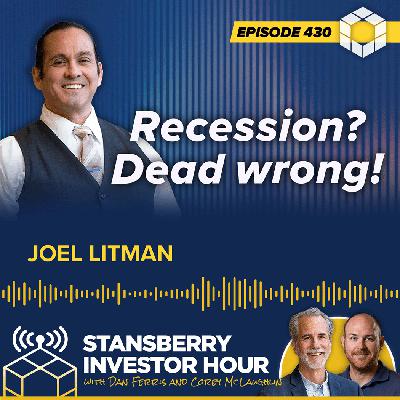
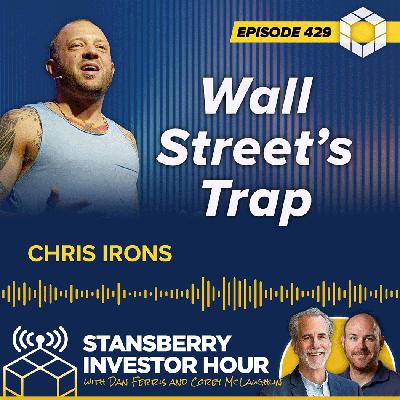
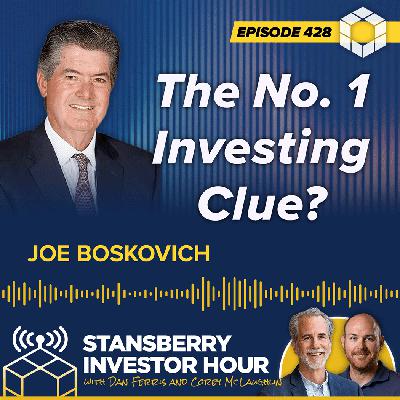
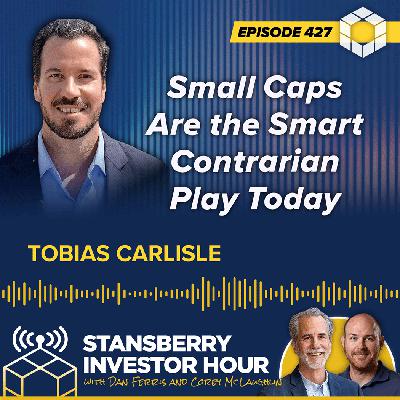
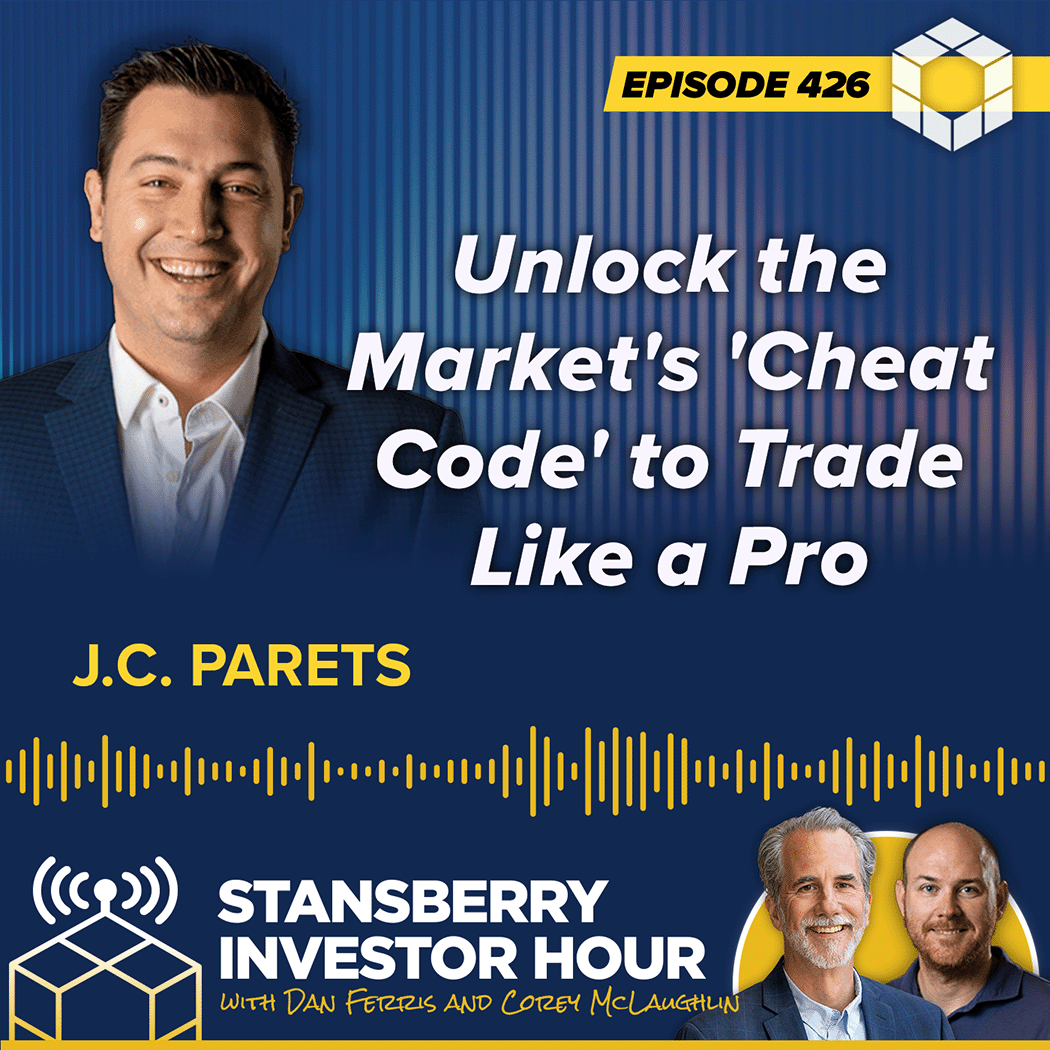
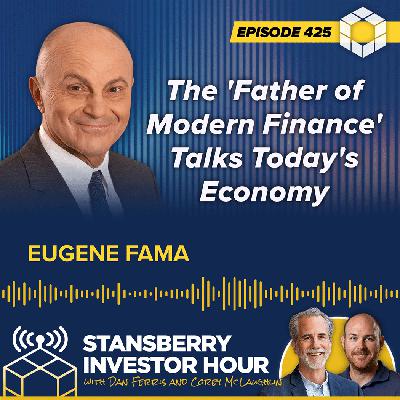
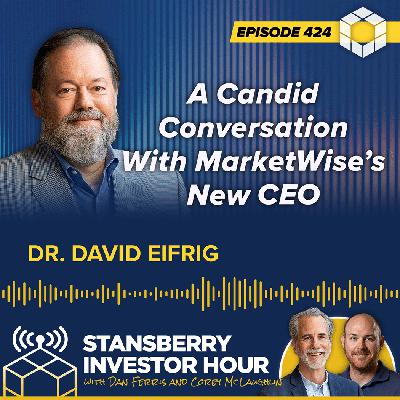
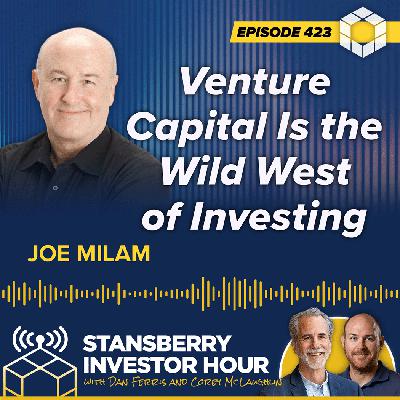
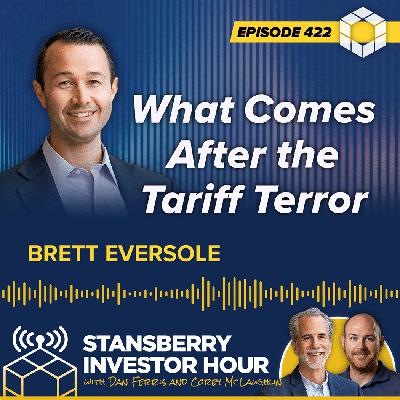
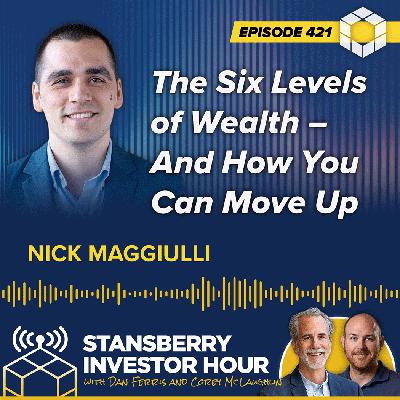
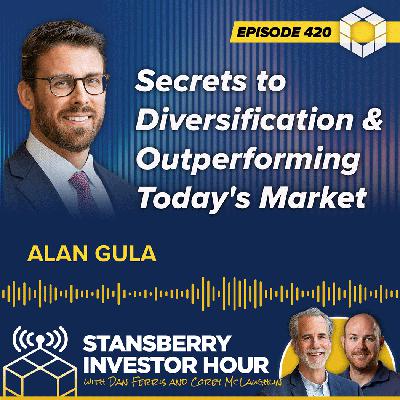
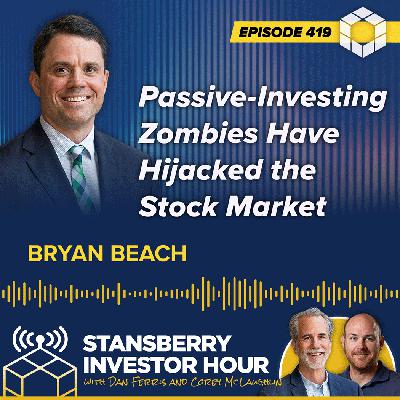
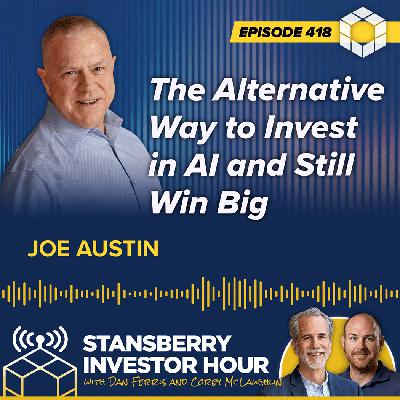
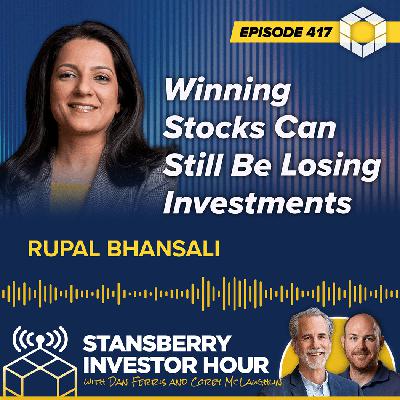
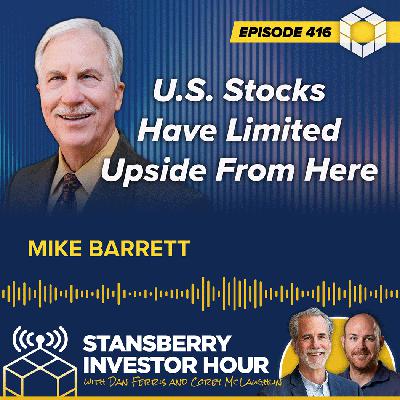
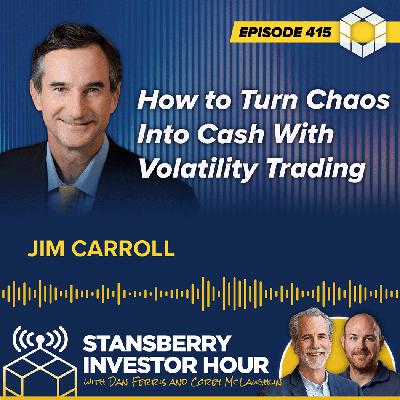
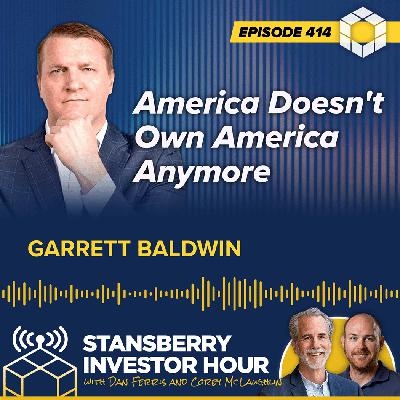
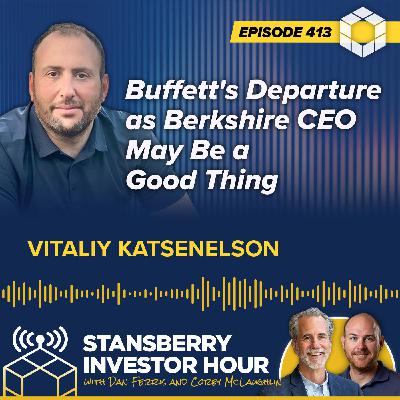
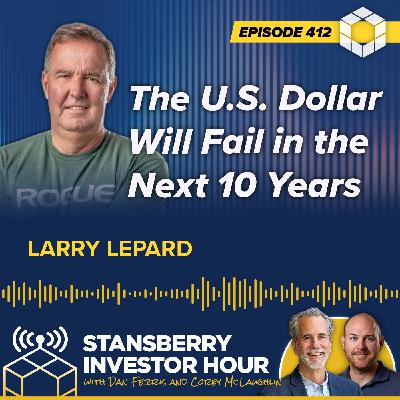
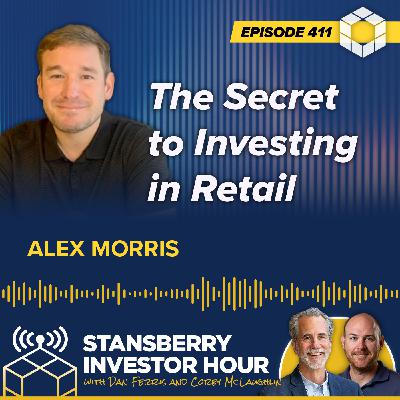



Remind me: Does the president select the Fed Chair or does the Fed Chair select the President?
enough about football
the guess has a very mono-tone voice
micro trends!?! The interviewee sounded like he has invested in 1cSTK companies that has a chance of being somebody/ real company.
This interviewee needs to find Tim Sykes 2 really learned how to trade 1cSTK. #TimSykes #investing #1cSTK #trading #investing
E.Wade has a great way explaining what Crypto is
this interviewee has a Great 👍way to invest w/o learning technical & fundamentals in STK trading
always heard of this style; just didn't know investors actually did this
Very informative! WOW!!! It expanded my Education in Crypto
have to listen to this 1 again.
Rupal gave up huge knowledge/nuggets on investing!!! Very powerful! And also the distinction she made about $APPL
wealthier is healthier - John Stamos
these Robinhood traders are like uninformed voters. They are trading w/ little information or none at all. Thinking they can master trading in amount weeks. As one of my trading Guru says: plan your trade; trade your plan.
From your title of your podcast and your style of trading, yes they are gambling. Once a ticker becomes a Pennystock(1cSTK), OTC, PINK or GREY SHEETS, your strategy changes as a day trader. This is where your past interviewee David Schum is lacking in knowledge. Get a knowledgeable person in the 1cSTK world to explain the strategy. the Hertz, JcP & GE.
another great guest
listening 4 the 2nd time. Rule's line about; Delta over time is where money is made. Most poor people don't have $$$$ to put over time. And usually for that matter not a whole lot time either.
WOW! can you say free free free free free free Free FREE
Not the Terminator's world, but more of a Star Trek way of life. Is what I was hoping.
the interviewee- is WOW!!! can't say much more than that.
why would you want 2B a bag holder. That takes/ uses up your Capital Most of those Co. are crap. It's better to day trade the STK.